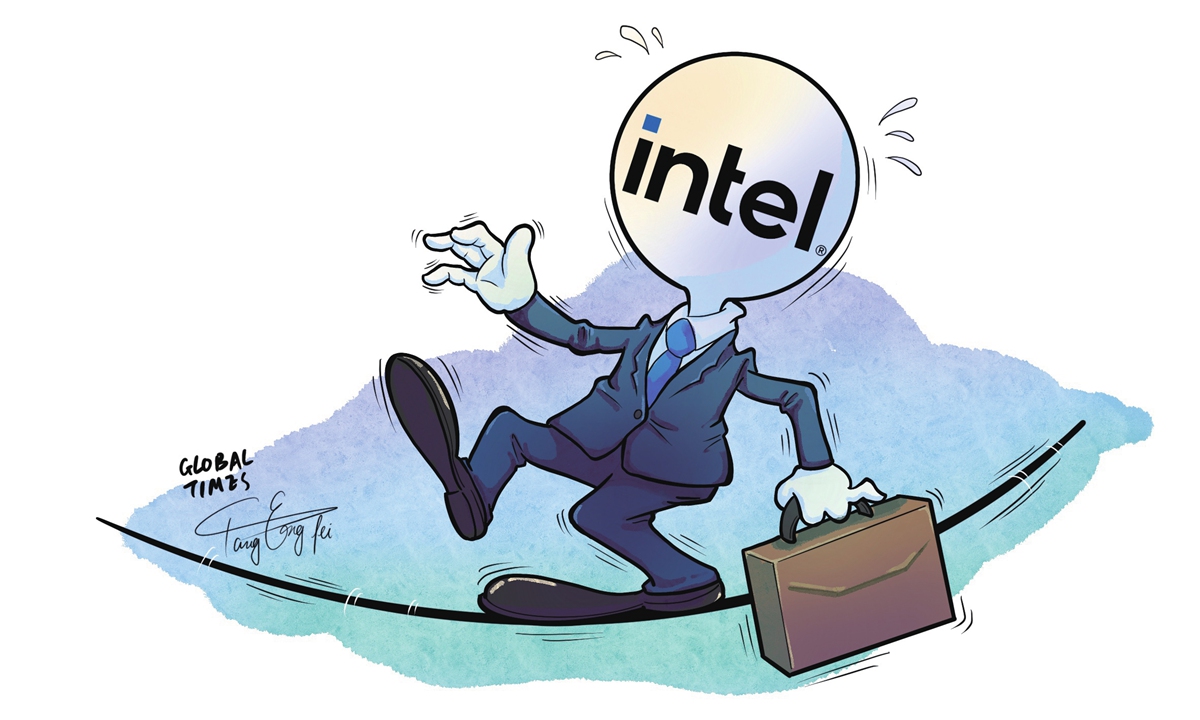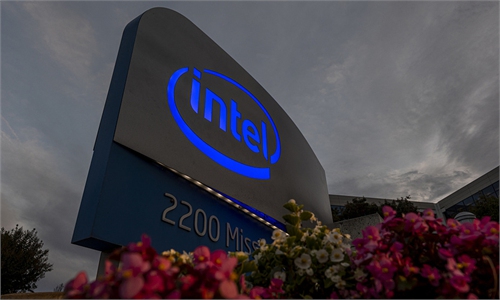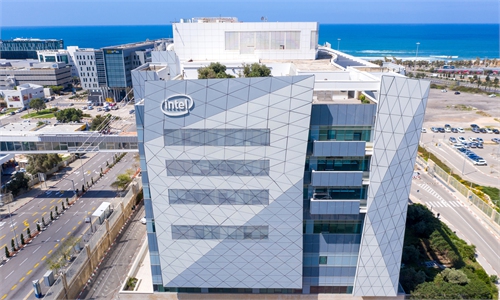COMMENTS / EXPERT ASSESSMENT
BIZ Quick Take: Intel apologizes, but it won’t fix its damaged image in China

Illustration: Tang Tengfei/GT
US chip giant Intel on Thursday said that it "deeply apologizes" for the trouble caused to its "respected Chinese customers, partners and the public," saying its letter requesting all suppliers to ban the use of products and labor from Northwest China's Xinjiang Uygur Autonomous Region sparked "many questions and concerns among our cherished Chinese partners, and we deeply regret it."
Intel became the most high-profile US tech giant to adopt the widely debunked claims of "forced labor" in Xinjiang pushed by anti-China US politicians and acted on it, prompting deep anger among the Chinese public and its Chinese partners.
On Wednesday, Chinese pop singer Wang Junkai terminated all cooperation with Intel, saying that after multiple rounds of "serious communication," the US firm still failed to publicly express its stance and attitude. "National interests are above all else," the young popular singer said in a statement.
It is such indignation and firm pushback from Wang and broader Chinese society that compelled Intel to apologize and clarify its stance on the issue that is related to China's national interests. Intel said in its statement that its original intention was to comply with US laws, and it did not mean anything else or try to declare its position.
Whether that's the real original intention of Intel is hard to know and frankly is not important. What's important is that its vicious action has disrespected millions of residents and many businesses in Xinjiang, undermined China's national interest and angered the Chinese public.
The viciousness of Intel's move is very obvious. Though it argued in the statement on Thursday that it had to comply with US laws, it actually made a conscious decision to please US lawmakers who are considering a massive legislation that would offer tens of billions of dollars in subsidies to US chip makers. Intel CEO Pat Gelsinger has been actively pushing for the $52 billion legislation.
In taking this move, Intel executives also apparently calculated that given its advanced technologies in the chip industry, its action would not prompt countermeasures from the Chinese market. Whether or not that its apology on Thursday was sincere, Intel executives should now know they have made an incorrect calculation in being two-faced with its biggest source of revenue.
Indeed, amid the widespread indignation toward Intel, many experts pointed out that there is no immediate alternatives to some of Intel's products in the Chinese market. Some even raised concerns about Intel cutting supplies to the Chinese market. But even if Intel moved to "comply" US laws and cut supplies, the sky won't fall on China. The US government has waged a multi-year tech war against China and cracked down on hundreds of Chinese companies. Did those actions hold back China's advances in core technologies? Did any of the companies fall into bankruptcy?
Intel may still be leading force in certain technologies and components, but keep in mind, most of the more than 200 components in a smartphone are made in China and 80 percent of the global smartphones are assembled in China. Since 2015, the Chinese mainland has been the biggest source of revenue for Intel with revenue from the mainland and Hong Kong reaching $20.26 billion.
The bottom line is Intel would not dare to cut supplies to the Chinese market, because giving up the Chinese market is akin to cutting its own legs off. Intel is already facing declining businesses and technological prowess, which is why it needs subsidies from the US government so badly. Intel executives should know that without revenue from its biggest market, subsidies from the US government will not save the company.
Finally, against the backdrop of the US intensifying its tech war against China, Intel's willingness to pander to US politicians attempts to contain China's technological development as shown in its boycott of Xinjiang products has seriously damaged its image and definitely rattled many Chinese partners, who are mostly likely considering contingency plans in case of supply disruptions. That is something Intel won't be able to fix with a simple apology.



